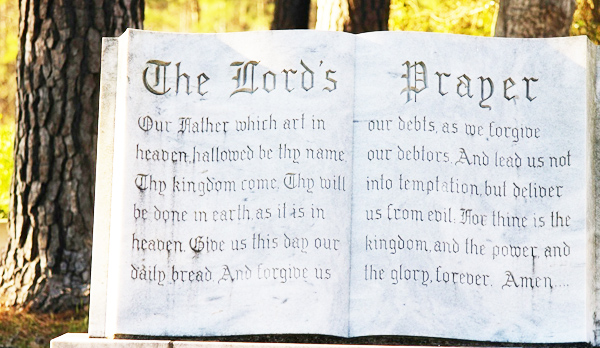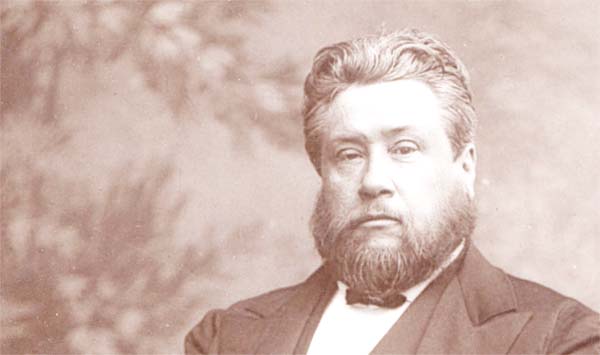Do you not know that the unrighteous will not inherit the kingdom of God? … And such were some of you. But you were washed, you were sanctified, you were justified in the name of the Lord Jesus Christ and by the Spirit of our God (1 Corinthians 6:9-11). Such were some of you. On one hand, what sweet words these are to believers! The church is not for perfect people but for sin-scarred, once-blind, still struggling people.
Sin
What Is Imputation, and Why Does It Matter?
Imputation is the act of one person adding something to another person’s account (Genesis 15:6). As believers in Jesus Christ, we have this clear assurance in Scripture: at the cross, our sins were imputed to Christ and Christ’s righteousness was imputed to us. The imputation of sin, as we see in Romans 5:12-15, is the way that God made for us to be saved. Our sin was placed upon Jesus Christ, and his righteousness was given to us, in order that we be saved.
No One Who Abides In Him Keeps On Sinning
No one who abides in him keeps on sinning; no one who keeps on sinning has either seen him or known him (1 John 3:6). This is a sobering passage. It is meant to be. However, it should not be a passage that causes the Christian believer to despair. John is not condemning the one who is seeking to overcome sin, but the one who habitually gives into sin without repenting. John purposefully describes here the one who is (or is not) continually sinning (as is evident from the “linear present”, or continuing action, of the verbs in the original
Crushed For Our Iniquities
He was pierced for our transgressions; he was crushed for our iniquities; upon him was the chastisement that brought us peace, and with his wounds we are healed (Isaiah 53:5). At the heart of the gospel — at the heart of what happened on the cross to Jesus Christ — is substitution. It is Jesus taking the place, and therefore the punishment, of sinners who deserved God’s wrath. At the cross, Jesus got what we deserved. Isaiah 53:5 gives us this clear insight into Jesus’ death.
What Is Perspicacity (And Why Does It Matter)?
The doctrine of the “perspicuity of Scripture” is a well-known and important teaching within the Christian faith. This doctrine refers to the fact that the Bible is clear, that it communicates perfectly. All scripture is profitable (2 Timothy 3:16). The Bible can be understood by anyone, barring mental handicaps (2 Timothy 3:15). This doesn’t mean it is easy to correctly understand; rather, the Bible requires careful, thoughtful study (2 Peter 3:16). Equally vital as the doctrine of Scripture’s perspicuity, however, is the balancing consideration of the “perspicacity” of the reader.
Lead Us Not Into Temptation
Lead us not into temptation (Luke 11:4). (Today’s is the last in a brief series of meditations on the Lord’s Prayer.) James says no one can say God has tempted him; this request, then, is for God to keep us from situations where we might fall. It is a recognition of the dangerous, bait-riddled, sin-inducing nature of this world. If love of money doesn’t get us, perhaps the temptation to fit in with the crowd will.
Forgive Our Sins
Forgive us our sins (Luke 11:4). (We are continuing in our brief series of meditations on the Lord’s Prayer.) Jesus teaches us to pray daily (see previous post) for the forgiveness of our sins, assuming (as we ought to) that we have strayed from the mark each day. Sins are sins — they are not merely mistakes, flaws, personality, or “my truth versus your truth.” And every sin is against God ultimately, and so must be dealt with before God (Psalm 51:4)
Why Do Evil and Suffering Exist?
The question of evil and suffering is never a theoretical one. We all experience real and deep pain and wickedness. However, for the Christian believer (who recognizes there is a God), there are only three logical possibilities for the evil things that happen in this world:
Why Fight Sin If Salvation Is Sure?
I discipline my body and keep it under control, lest after preaching to others I myself should be disqualified (1 Corinthians 9:27). Paul, writing to the church at Corinth to correct their problems, confesses that he himself has to be careful to avoid sin. In fact Paul intimates he goes to great lengths — disciplining his body, keeping himself under control — to avoid the pitfalls of willful sin. But why? Did Paul not believe in the perseverance of the saints, or in the eternal security of believers?
The Eternal Implications of the Flood
He blotted out every living thing that was on the face of the ground … Only Noah was left, and those who were with him in the ark (Genesis 7:23). The worldwide Flood is sobering to consider. In Noah’s day, at a real point in time in actual history, every person on earth was drowned except the eight who were in the Ark. This is the greatest catastrophe in history, and no other event — tsunami, earthquake, hurricane, or volcanic eruption — even comes close. This was not a “natural” or normal kind of catastrophe.
Exhort Each Other Daily
Exhort one another every day, as long as it is called “today,” that none of you may be hardened by the deceitfulness of sin (Hebrews 3:13). I was thinking recently about cases where a person who has been a professed believer, maybe even a well-known Christian leader, falls into public sin or even apostasy, and walks away from the Christian faith. Sadly, there have been many such cases in the news lately. We often think, and maybe even say, afterward that in hindsight there were some tendencies we could see in that person’s life that led to their eventual demise:
Freedom to Serve Christ Alone
“All things are lawful for me,” but I will not be dominated by anything (1 Corinthians 6:12). It seems as Paul writes his first letter to the church at Corinth, that the Corinthians were taking Paul’s own words — his principle of freedom in Christ specifically — and twisting it to their own sinful purposes. The problem was that some were quoting Paul regarding the freedom we have in Christ, but ignoring the balancing truth of what grace sets us free to do:
Babel & the Sin of Glorifying Ourselves
Then they said, “Come, let us build ourselves a city and a tower with its top in the heavens, and let us make a name for ourselves, lest we be dispersed over the face of the whole earth” (Genesis 11:4). The great sin of the city of Babel is not tower-building, or unified labor toward a societal goal. The sin of Babel is the sin of seeking independence from God.
Lord, Save Me From My Sins
My wife and I were struck by this recent devotion from C.H. Spurgeon’s Checkbook of Faith — so much so, in fact, that we’ve printed out a copy, framed it, and hope to make it a regular part of our prayer life. Nothing is more potent or refreshing than praying God’s promises back to him! From Every Sin “He will save his people from their sins” (Matthew 1:21).
If We Confess Our Sins
If we confess our sins, he is faithful and just to forgive us our sins and to cleanse us from all unrighteousness (1 John 1:9). We have no idea how deeply damaging the unconfessed sin in our life is. But we also cannot imagine how powerful and wise God’s forgiveness and cleansing will be.













